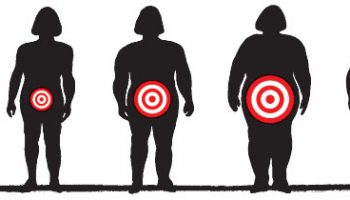INTERMITTENT FASTING: MY THOUGHTS🤔
So much dust has been raised recently on intermittent fasting and if its a healthy lifestyle to adopt. So lets take this journey together and see what INTERMITTENT FASTING is really about shall we?😊.
Intermittent fasting is actually not a diet but timed approach to eating. It really doesn’t restrict you from consuming a particular class of food or restricts the source of calories like every other diet regime would. Presumably, it might have some health benefits especially weight loss but it is not for everybody and it is not really ideal for a weight loss regime because concrete research has not confirmed its effectiveness.
According to medical news today,INTERMITTENT FASTING involves cycling periods between eating and fasting.
There are different methods which you can adopt if you want to go on intermittent fasting and they include:
1. The 16:8 method which involves eating for 8 hours and fasting for the remaining 16 hours in a day. This method is actually termed the easiest type of fasting; well, sounds that way though. This method is also known as the Leangains protocol, and was popularized by fitness expert Martin Berkhan.
Doing this method of fasting can actually be as simple as not eating anything after dinner, and skipping breakfast ( not me😢).
For example, if you finish your last meal at 8 pm and then don’t eat until 12 noon the next day, then you are technically fasting for 16 hours between meals, phew😲😥😥.
2. The 5:2 fasting which involves fasting for 2 days per week and restricting caloric intake to 500-600kcals on those two days while eating as you like for the other 5 days.😊.
3. Eat-stop- eat requires you fast for 24 hours a day eitger once or twice a week.
4. Alternate day fast requires that you fast every other day either by total fasting or restrictive calorie eating.
5. The warrior diet: fast during the day, eat a huge meal at night. You seriously would be discomforted at night if you go through with this.
6. Spontaneous meal skipping; where you tend to skip meals when convenient for you.
It actually requires great discipline to go through with any of these methods. This being said, i should also state that intermittent fasting is not for everyone; pregnant women , people with diabetes, people with eating disorders, people on medications and underweight people shouldn’t involve themselves in this eating method.
What are the benefits of INTERMITTENT FASTING?
well, here are a few:
* reduces insulin levels
* improves growth hormones
* aids rapid weight loss
* may prevent cancer; i said may o🤧😞.
Now, we’ve seen the benefits, lets zoom in on them and pick out the risks involved.
Firstly, if insulin levels are reduced, then its a risk factor for development of diabetes because diabetes happens either when there is inability of insulin to move nutrients to cell sites or absence of it to do its work.
Secondly, any weight loss that is rapid just involves loss of water and glycogen and could easily be regained back if you stop fasting. Sustainability is all that really matters in any diet regime or eating pattern. The distribution of fat might change thereby leading to an increased level of fat tissue in the wrong place (abdomen) which might lead to insulin resistance because distended abdomen is related to insulin resistance and diabetes.
Higher levels of free radicals might be incurred during this prolonged period of fasts.
It might also lead to ghrelin insufficiency which would likely leave you in starvation mode for a long time and malnutrition sets in because you are always on a calorie deficit; 500kcals per day?😢😲😲
In all this, make sure you consult a DIETITAN before delving into any type of diet or eating patterns you wish to start.





